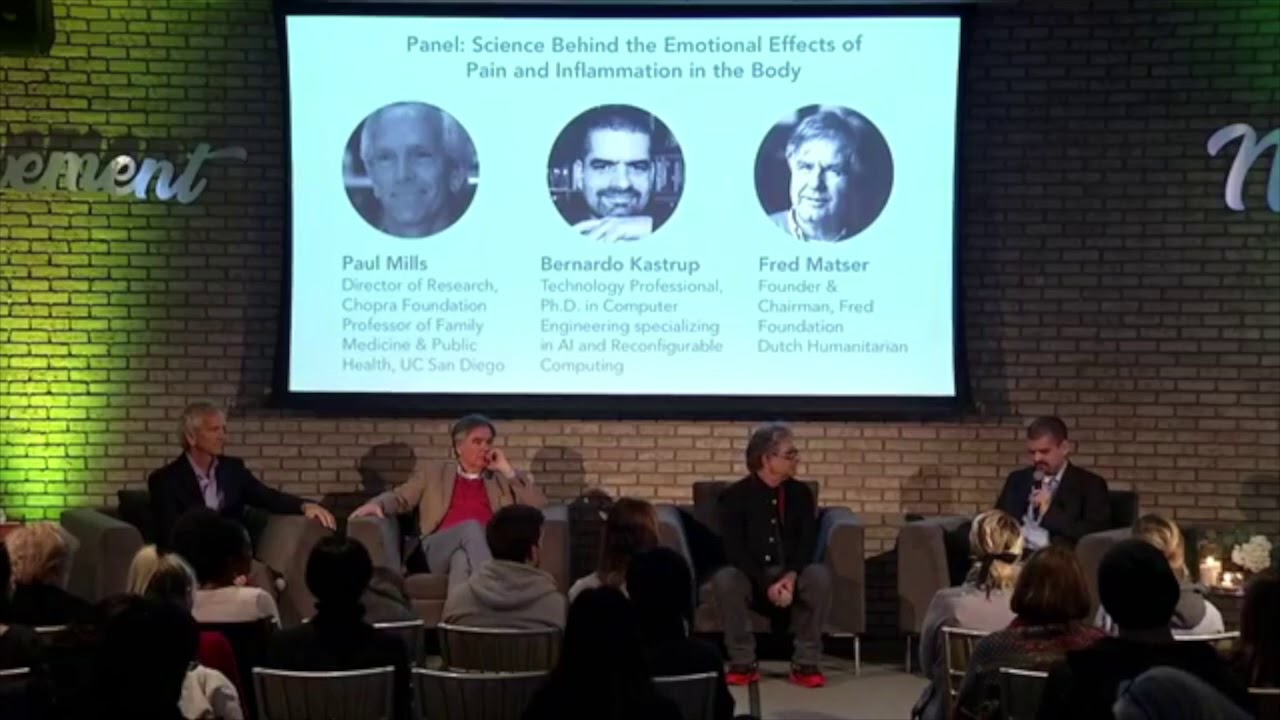Suffering, Despair, Self-Reflection, The Fall, Original Sin, Origins Of Symbolic Thinking
Unleash Your Creative Genius with MuseMind: Your AI-Powered Content Creation Copilot. Try now! 🚀
Introduction
In today's discussion on the role of inflammation, emotion, pain, and suffering, let's start with Bernardo Castro, a computer engineer turned philosopher. Despite not having a medical background, he brings an interesting perspective on the differentiation between pain and suffering. While pain is something physical and of the moment, suffering is psychological and extends into the past and future. It arises from the stories we tell ourselves about the meaning of pain in our lives.
The Weight of Suffering
When we experience pain, it can feel overwhelming, but there's a sense of lightness to it because it is only in the present moment. Milan Kundera describes this as the "Unbearable Lightness of Being." On the other hand, suffering carries a weight and heaviness that comes from the stories we create around pain. These stories reflect our past actions, our fears of death, or the sense of meaninglessness in our lives.
Self-Reflectiveness and the Origins of Suffering
Castro delves deeper into the origins of suffering by exploring the concept of self-reflectiveness. Self-reflectiveness is the uniquely human ability to turn our thoughts and feelings into objects of thought. Through self-reflection, we not only experience but also become aware that we are experiencing. This characteristic sets us apart from other creatures and allows us to create narratives about our past and future.
Drawing from the insights of philosopher Soren Kierkegaard, Castro explains that our sense of self, our story, is a result of self-reflection. Kierkegaard states that the self is the relationship to oneself and that self-reflectiveness is an inherent part of being human. While self-reflection allows us to contribute to the universe's reflection upon itself, it also comes at a cost - suffering. This concept has been understood for thousands of years and is even referenced in the Bible.
The Fall into Self-Reflection
In the biblical story of Adam and Eve, they were initially naked but not ashamed. They were not self-reflective beings. However, when they ate from the fruit of the tree of knowledge, their eyes were opened, and they became aware of their nakedness. This transition marked the fall into self-reflection and the beginning of suffering for humans.
Ian Tattersall, a leading paleoanthropologist, further sheds light on this fall into self-reflection. He suggests that when anatomical humans emerged, they were already cognitively indistinguishable from other creatures, such as Neanderthals. It was only later, through the development of symbolic cognition and language, that humans began to engage in self-reflection. This cognitive leap was unparalleled in history and had no immediate use. Symbolic thinking existed tens of thousands of years before the development of language.
Tattersall's perspective raises intricate questions about the origins of self-reflection. It suggests that not only did self-reflectiveness arise by chance, but it also remained fixed for thousands of years before being utilized. This near-miraculous occurrence emphasizes the mysterious nature of our ability to self-reflect and the subsequent suffering we endure.
Conclusion
In conclusion, our ability to self-reflect is both our greatest gift and the source of our greatest pain and suffering. The distinction between pain and suffering lies in the temporal nature of pain compared to the enduring psychological weight of suffering. While pain exists in the present moment, suffering extends into our narratives about the past and future. The fall into self-reflection, as described in religious and scientific accounts, plays a significant role in our suffering. The origins of self-reflection remain shrouded in mystery, but its impact on our lives is undeniable.

Related Recaps
- Anthony Joshua - The Get Back
- M0B feat. Ricky Valens - Sleepless (Southmind Edit)
- 24-03-2023 - COURT OF HON'BLE THE ACTING CHIEF JUSTICE MR. JUSTICE A.J.DESAI, GUJARAT HIGH COURT
- SZN 3 WATCHES GUARDIANS OF THE GALAXY VOL.3! | LIVE THEATRE REACTION #8
- MY PERFORMANCE MADE HER EMOTIONAL🥹❤️~ Best friend engagement party || it’s me Muskan ||